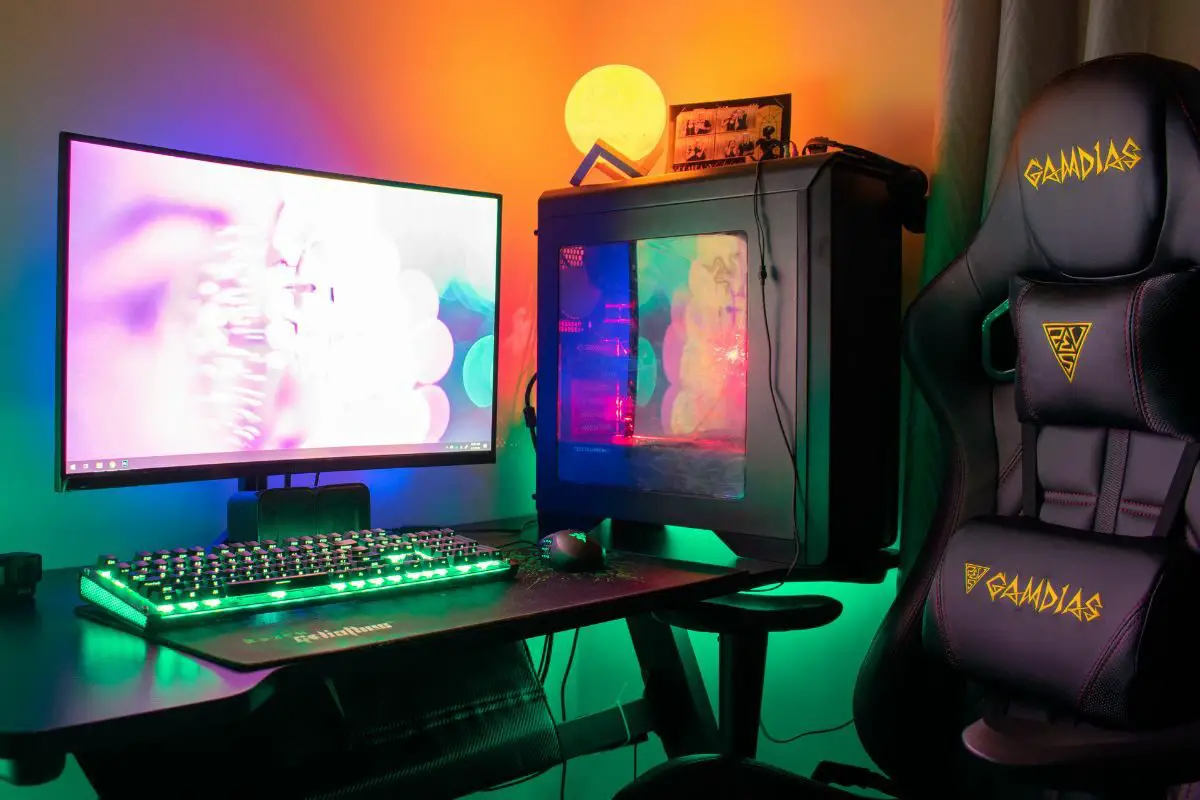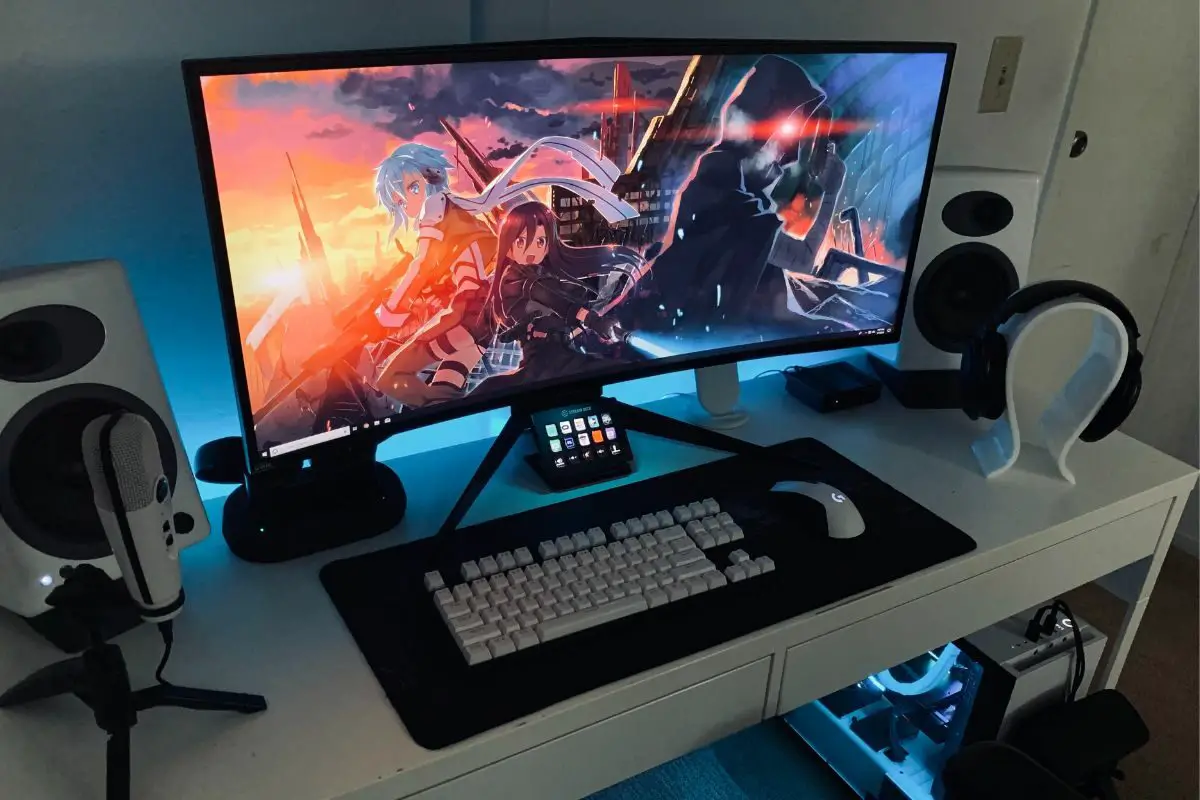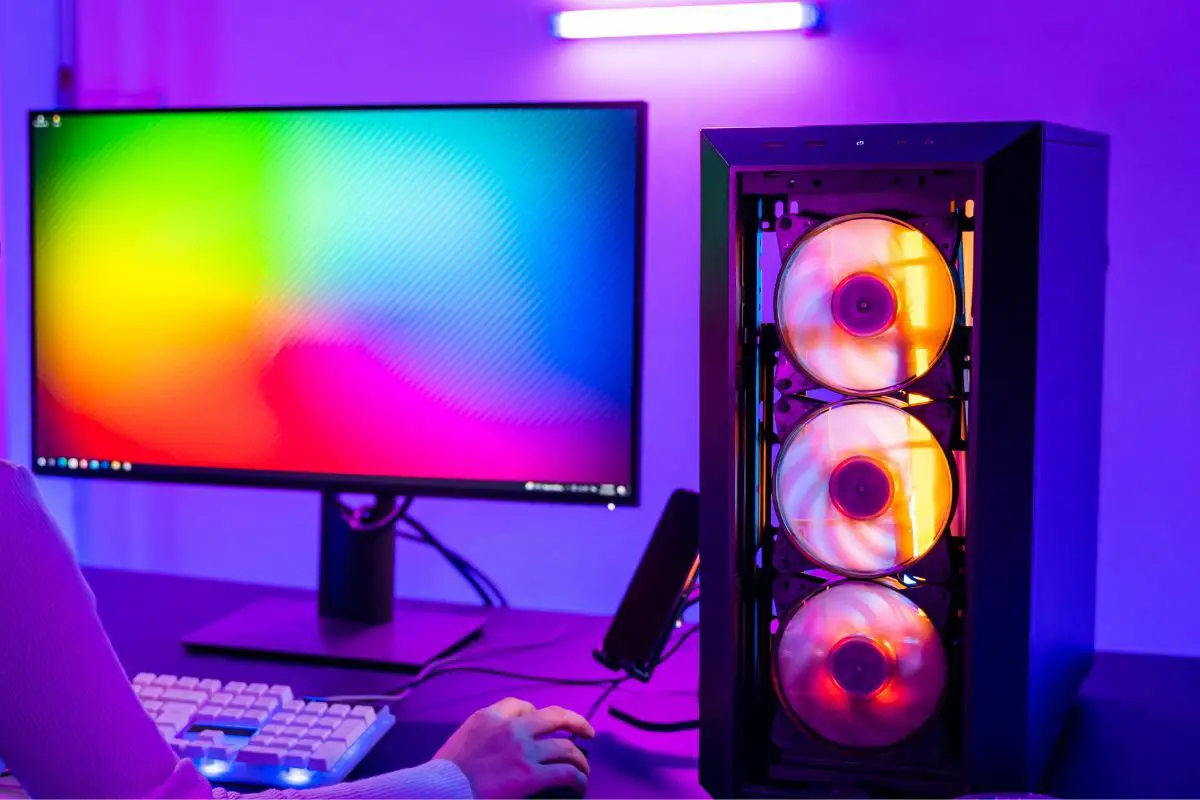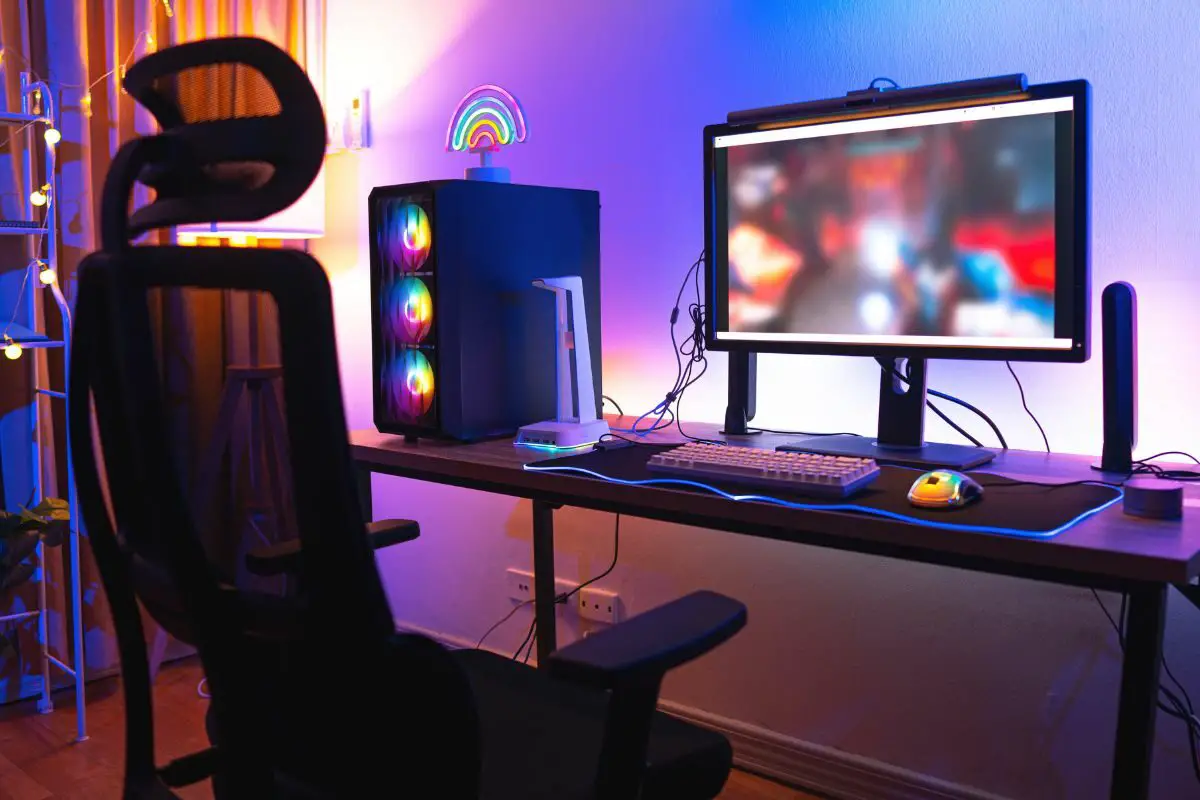
Are you finding it hard to decide between 1080p vs 1440p for your gaming experience? 1080p is a great option if you want to get the best performance and highest frame rates out of your graphics card. But if visual fidelity is very important to you, 1440p resolution is the way to go, though it will push your graphics card a lot more.
When I purchased my new gaming monitor, I was ready to play all my games at native resolution. However, I realized that a lot of streamers and professional gamers don't always play at higher resolutions, even when their monitor can. This led me to learn all about the battle between 1080p vs 1440p for gaming.
I've put this guide together to show you how these popular display resolutions stack against each other, and show you which might be best for you. Let's get into it.
Contents
It's important to have a good understanding of what screen resolution is and what those numbers represent. It makes it easier for you to understand the rest of this guide.
Your display resolution refers to the number of pixels that your monitor has in both of its dimensions.
When written out, the first number in your display resolution refers to how many pixels your screen has in its horizontal dimension (width), followed by the vertical dimension (height).
The shortened form of your resolution, such as 1080p, typically uses the number of pixels in your screen's vertical dimension. This is keeping a 16:9 aspect ratio in mind though.

So, when you hear 1080p or Full HD, it typically refers to a 1920 x 1080 display. This will be 1920 pixels wide, and 1080 pixels tall.
Similarly, 1440p resolution, or Quad HD, talks about a 2560 x 1440 display, where 1440 is the height of the screen in pixels.
There are other resolutions that may be 1080 pixels tall, such as 2160 x 1080, but since it is not in the 16:9 aspect ratio, it is not what most people refer to when they say 1080p.
You might hear about upscaling when it comes to higher-resolution monitors. It's important to understand this.
When you display 1080p content on a 1440p monitor, your computer has to calculate how to "stretch" it over the additional pixels.
With well-programmed upscaling, a Full HD image or video will still look sharp at 1440p resolution. However, when done poorly, it may look a bit "soft" or blurry, which isn't what you want.
Higher-end monitors will usually come with technology to make their resolution upscaling a lot more pleasant on the eyes.
When considering 1080p vs 1440p, there are some major factors that are compared that are very likely to make a difference for you.
Let's talk about these and how they might impact your choice of resolution.
The pixel density of a screen talks about how tightly packed the pixels are on the available screen real estate.
When you can fit more pixels into the same screen size, you tend to get a richer, sharper-looking image.
Pixel density is measured in pixels per inch, or PPI. As the name gives away, it talks about how many pixels you'll find on each inch of the display. The more pixels per inch that you have, the higher the pixel density.
It's important to keep in mind that this is a measure of not only the resolution of the monitor but the screen size as well.
Two 1080p screens have the same resolution, but if one is 15" and the other is 27", the pixels need to be more densely packed on the 15" screen, leading to a higher pixel density.
With the same logic, if you have two screens of the same size with one being 1080p and the other being 1440p, the latter will be more pixel-dense.
The actual panel being used in your monitor has a big impact on its image quality, but so does your pixel density.
A 75" screen with the exact same density as a 30" screen may have a more comfortable screen distance, but it might not necessarily look better up close since the pixels are larger and much more noticeable on a bigger screen.
The less noticeable your pixels are, which having a higher density favors, the higher image quality you're likely to have!

When trying to choose a gaming monitor, there are many factors that you consider such as refresh rate, response time, panel technology, and so on.
However, the resolution of a gaming monitor will always be one of the most important specs for a PC gamer.
There's a very straightforward association between gaming performance and your resolution. The higher the resolution for the game you're playing, the more juice it needs to squeeze out of your GPU. A lower resolution will give your graphics card a bit more space to breathe.
Some people argue that the difference in graphical fidelity between 1080p and 1440p is not that wide and it is worth the higher frame rates you can squeeze out, especially when playing competitive games.
Of course, your display cost is a big consideration in your choice of 1080p vs 1440p.
It goes without saying that a high-quality monitor with a maximum resolution of 1440p will be more expensive than a similar monitor that only maxes out a 1080p.
When making your choice between 1080p and 1440p, it is important that you assess the options of gaming monitors that you have. You may have to settle with 1080p if 1440p displays are too costly for you.
So, when it comes to the 1080p and 1440p resolutions, which is the better choice for you and your needs? We'll talk about that in this section.
Note though, while deciding between 1080p and 1440p might seem like a choice between two different monitors, it can also be a choice if you have at least a 1440p monitor.
A monitor at 1440p or a higher resolution will give you the option to choose between either 108op or 1440p when gaming or when simply using your OS.
When are you best off going for a 1080p or Full HD monitor? Well, there's a lot you can consider here.

1440p, being a higher resolution, comes with a lot of obvious advantages, but there are some downsides you might not realize.
In the battle of 1080p vs 1440p gaming-wise, which screen resolution comes out victorious?
Well, overall, I lean towards the side of gaming at 1440p. If you have a monitor that can go that high and a GPU with good enough video performance, I feel like you should take advantage of what you spent your money on! Those more detailed images make it worth it!
However, if you value a higher frame rate for competitive gaming and have a high refresh rate monitor, I'd say you should stick to Full HD. Plus, this option is better if you want to get a monitor with a lower budget.
1080p and 1440p are two resolutions that match a lot of people's system's capabilities, but what about 4K — the resolution that gets a whole lot of buzz?
4K is basically the pinnacle when it comes to image sharpness and improved clarity. In numbers, 4K resolution refers to 3840 x 2160 pixels, which has four times as many total pixels as 1080p.

However, 4K monitors are still quite expensive, and you'll need to fork out almost triple the amount you do for a standard 1080p display.
If you can afford one, you can enjoy what it does for you when doing other tasks on your computer. However, when it comes to gaming, unless you have one of the very best GPUs in the market, you're very unlikely to be able to play at native resolution.
So, for now, a 4K display is a good choice for media consumption and the additional workspace it provides. I just won't recommend getting one for its gaming benefits if your hardware isn't appropriately powerful.
When it comes to 1080p and 1440p, it can be tough to figure out which resolution is the best for you. However, I recommend going with 1080p if you're buying a monitor on a budget or if you're trying to get the best frame rates as a competitive gamer. 1440p resolution is the choice though if your computer has the optimal performance to play games at a higher quality.
There's a lot of talk about 4K when it comes to gaming, but for most people, it simply isn't a practical option. 4K resolution is so much more detailed compared to 1440p, but that's only if you have the computer components that can easily push your games out with such detail.
Was this article able to show you more about 1080p vs 1440p gaming-wise? If so, take a look at our related articles, where you can learn a lot more about your computer.
